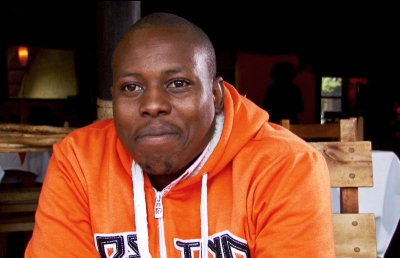“It was a scary moment, you know, because you hear lots of stories about it. Until I got the chance to come to camp, and realise that it’s actually nothing. In fact, it was a great experience,” says Charles, 27, reflecting on the Voluntary Medical Male Circumcision procedure which he underwent a year ago.
The camp he refers to is the Lihawu male mentoring camp, a three-day youth-focused residential camp run by Kwakha Indvodza, a Swaziland-based nongovernmental organisation which engages men around social responsibility, financial independence and male health. During the three days young men between the ages of 15 and 29 are given comprehensive life skills courses which encourage positive masculinity and responsible adulthood. Participants are sensitised on sexual health, sexuality, hygiene, self-respect, relationships and rights, as well as HIV prevention and post-VMMC basic care and conduct. On the last day of the camp, a range of services are offered on site, including HIV counseling and testing, STI screening and referral, TB screening and referrals, linkages to HIV treatment and care and VMMC.
Charles has since become a self-appointed champion of the initiative, reaching out to other young men in his community to attend the camp and undergo VMMC.
“For me, trying to get more boys is not because I am expecting something in return, but I want other young men to have the experience that I had when I came here... What happened to me, what I learnt, the impact that it had on my life,” says Charles.
Swaziland’s first attempt to implement a nationwide VMMC programme, called “Soka Uncobe” or “Cut and Conquer,” has limited success to significantly increase demand for VMMC, although it did increase access to fixed and mobile VMMC services. “Clinical spaces can be quite alienating for young men. They come in for VMMC but fail to get adequate support from family or friends when they leave the facility. This can discourage them from coming forward for services,” says Tom Churchyard, Executive Director of Kwakha Indvodza.
The lack of support throughout the process is a gap that the Lihawu Camp seeks to fill. Through an innovative design of a strong male mentoring programme, the camp brings together the clinical and cultural space, thereby increasing acceptance of VMMC services among young men. A critical feature of the camp is the traditional Swazi Lisango (men’s meeting place), a modified traditional cattle kraal used to create a safe space where the participants can have “man-to-man” educational experiences with their peers and with guidance from KI mentors. Thus, male circumcision is promoted as part of an Ubuntu sense of community responsibility and encouraged as a positive step in masculinity.
The concept is one that is ripe to be scaled up. Currently, KI manages only to reach hundreds of boys a year. Ideally, the programme implementers would like to see this reach the thousands of young men in Swaziland who could benefit from this kind of programme.
Charles would like to see this too. “What I have learnt about this camp is the impact that it has on young guys like me. They have come up with a project that will benefit not only the guys that have been here, but the whole country. Even more later… even out of Africa,” he says.

